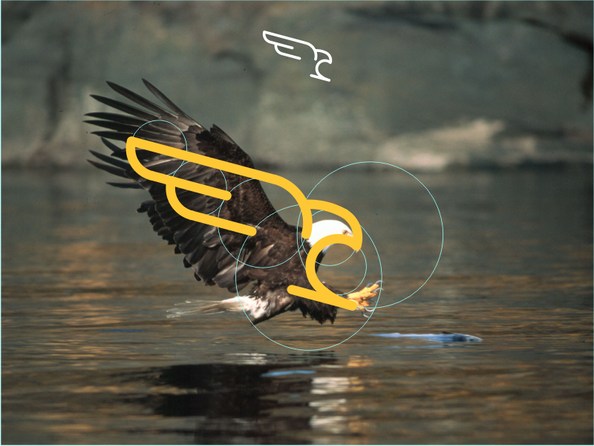LEADERSHIP
Why Conscientious People Are so Successful
BY DRAKE BAER
|
[Image: Flickr user TtoTheStreet]
|
|
Research shows that being conscientious will help you succeed in the long run. The only major personality trait that consistently leads to success is conscientiousness. "It's emerging as one of the primary dimensions of successful functioning across the lifespan," Paul Tough writes in How Children Succeed. "It really goes cradle to grave in terms of how people do." Tough says that people who test high in conscientiousness get better grades in school and college, commit fewer crimes, and stay married longer. They live longer, too, he says. And not just because they smoke and drink less. They have fewer strokes, lower blood pressure, and a lower incidence of Alzheimer's disease. There's a staggering amount of research linking conscientiousness with success. A National Institute of Mental Health study found that conscientious men earn higher salaries. The National Institute on Aging also found that conscientiousness is linked to income and job satisfaction. Other studies show that conscientiousness is the most important factor for finding and retaining employment. How do you know if you're conscientious? Conscientious people tend to be super organized, responsible, and plan ahead. They work hard in the face of challenges and can control their impulses. Psychologists classify conscientiousness is one of the "Big 5" personality traits, with the others being agreeableness, extroversion, neuroticism, and openness to experience. The other traits can predict certain workplace outcomes--extroversion is a great fit for highly social gigs like sales and openness to experience often leads to creativity--but conscientiousness is remarkable for the way it cuts across roles. Research shows that arriving on time, doing thorough work, and being thoughtful toward your colleagues helps people regardless of their job function or workplace situation. "Being on top of deadlines is almost universally a good thing," one industrial psychologist told us. Moreover, within conscientiousness are the narrower traits of self control and "grit," which University of Pennsylvania psychologist Angela Duckworth has found to be more integral to children's scholarly success than IQ. Why conscientiousness people are so successful"Highly conscientious employees do a series of things better than the rest of us," says University of Illinois psychologist Brent Roberts, who studies conscientiousness. To start, they're better at goals: setting them, working toward them, and persisting amid setbacks. If a super ambitious goal can't be realized, they'll switch to a more attainable one rather than getting discouraged and giving up. As a result, they tend to achieve goals that are consistent with what employers want. Roberts also owes their success to "hygiene" factors. Conscientious people have a tendency to organize their lives well. A disorganized, un-conscientious person might lose 20 or 30 minutes rooting through their files to find the right document, an inefficient experience conscientious folks tend to avoid. Basically, by being conscientious, people sidestep stress they'd otherwise create for themselves. Being conscientious "is like brushing your teeth," Roberts says. "It prevents problems from arising." Conscientious people also like to follow rules and norms. You can spot the conscientious kids in the classroom. They sit in their chairs, don't complain, and don't act out--which also, of course, contributes to earning good grades from teachers. While conscientiousness doesn't correlate with high SAT scores, it does predict high GPAs. To spot conscientious people at work, Roberts says to look for punctuality. If someone shows up on time, that's a great clue toward conscientiousness, since a punctual person has to be organized enough--and care enough--to arrive on time. The bigger, and less visible, indicator is how people deal with setbacks. Do they give up or redouble their efforts? "The conscientious person is going to have a plan," Roberts says. "Even if there is a failure, they're going to have a plan to deal with that failure." ⎯⎯⎯⎯⎯⎯⎯ AUTHOR
JOHN ARENAS → John P. Arenas is CEO of Serendipity Labs LLC, a franchised corporate co-working brand. Arenas has over 20 years of experience building workspace and hospitality brands and working in commercial real estate, investment and finance. As a serial entrepreneur, he has successfully built three companies that serve on-demand workspace needs for corporate real estate occupiers and mobile workers. |
Conscientiousness
Definition (Psychology Today) Conscientiousness is not just about getting to the church on time, in a freshly-ironed outfit. It is a fundamental personality trait that influences whether people set and keep long-range goals, deliberate over choices or behave impulsively, and take seriously obligations to others. Conscientiousness is a key ingredient in success, but the off-the-charts conscientious may court perfectionism by setting their sites too high. Sub traits of the conscientiousness domain Each of the Big Five personality traits is made up of six facets or sub traits. To test personality, these can be assessed independently of the trait that they belong to. The sub traits of conscientiousness are:
How Conscientious Are You? _______________________________ This personality test is designed to assess how Conscientious you are. Conscientiousness is one of the superordinate traits in the 'Big Five' model of personality. It refers to individual differences in the tendency for people to follow socially prescribed norms for impulse control, to be task- and goal-directed, to be planful, delay gratification, and follow norms and rules. In this interactive test, you'll answer 60 to 70 questions about your thoughts, feelings, and behavior. When you're done, you'll be presented with personalized feedback about how conscientious you are and how your scores compare to those of others who have completed this test. This personality test takes about 5 to 8 minutes to complete. |
|
The
Psychodynamic Coaching & Consultancy.__ |
SITE MAP
|
Get in touch
|


